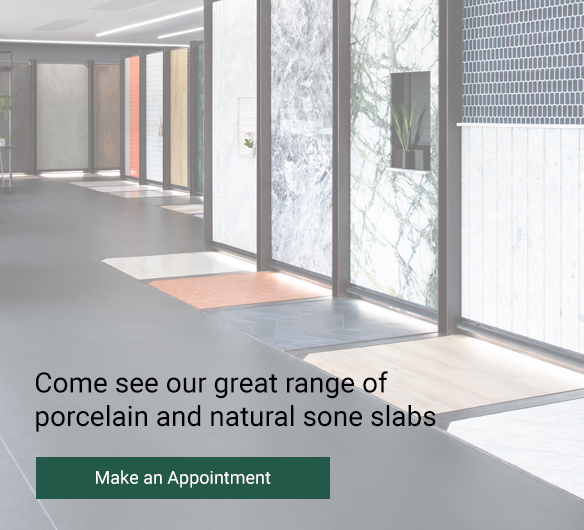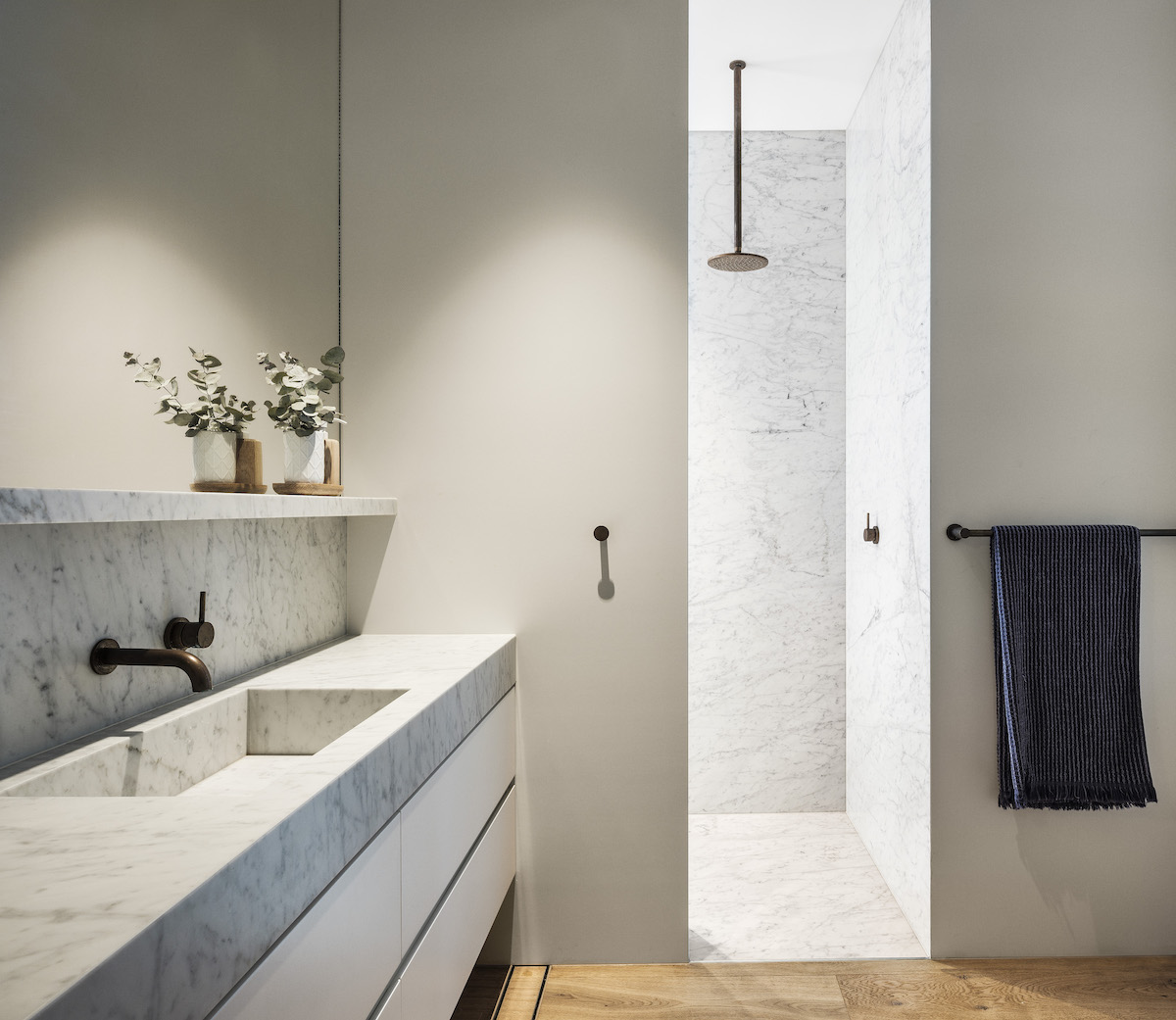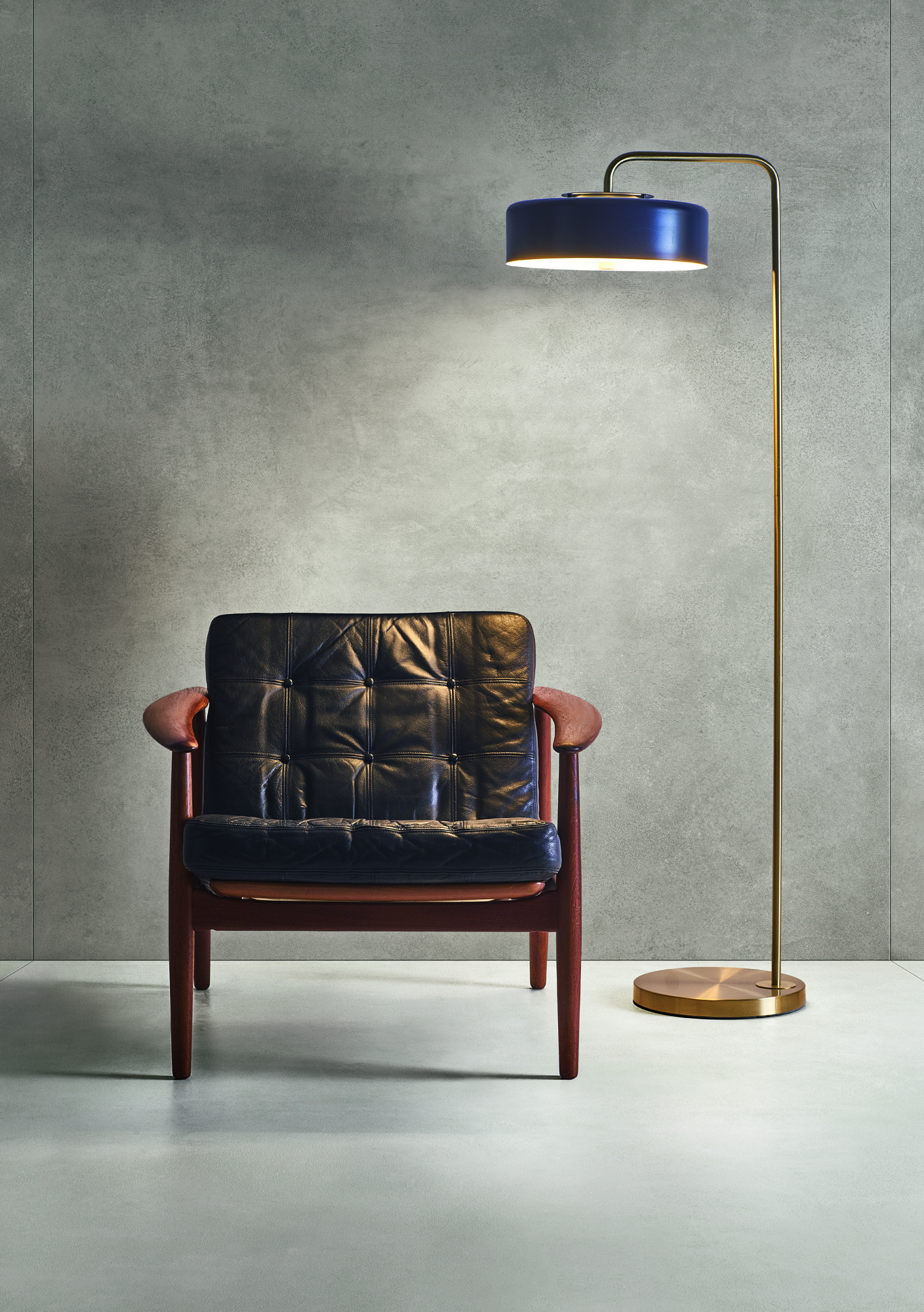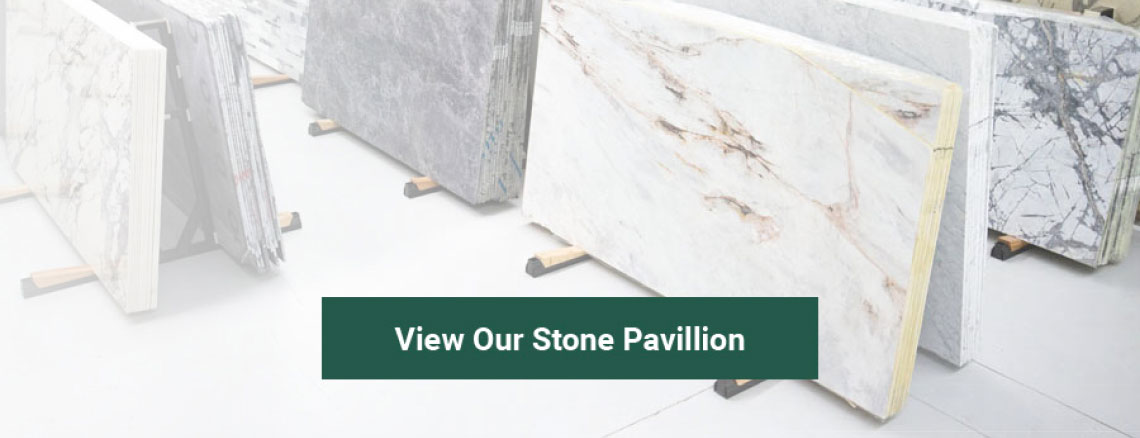WHAT IS NATURAL STONE?
Natural stone slabs are formed from a pure stone type, quarried from the earth. This material refers to a number of popular local and imported stone varieties, all which bring specific qualities and aesthetics. Common natural stone options are:
- Marble: A distinctive stone form used to give an air of luxury for thousands of years. As a hard and dense stone it can be used in areas that receive a lot of foot traffic and are exposed to water. However it is liable to scratching so outside use is not usually recommended.
- Granite: Easily the hardest of the natural stone selection, granite brings toughness and durability to your flooring. It is particularly resistant to staining and scratching so can be used in areas where there is heavy use.
- Limestone: As the softest of the natural stones, limestone is also the most versatile and can be more easily cut and installed to your exact requirements. Its natural look is particularly brilliant, however these slabs do need regular upkeep in order to last.
HOW ARE PORCELAIN TILES DIFFERENT TO CERAMIC TILES?
A common confusion for those dealing with tiles is mixing up porcelain with ceramics. In fact, the industry often use terms interchangeably - so what exactly is the difference?
In a lot of ways, porcelain is best considered as a close cousin of ceramic. They are formed slightly differently and behave individually once installed - but the key difference is that porcelain is far more impervious than ceramic.
Ceramic is made by firing white or red clay and then coating it with a durable glaze. It provides a hard, durable surface, but is not as solid as porcelain. As such, ceramic products are more easily hand cut to fit specific areas and can be more affordable. However, they tend to absorb water and are not frost resistant. This means they should be reserved for indoor use, whether they are unlikely to come into contact with too much moisture and temperature fluctuation.
Porcelain tiles, on the other hand are fired at much higher temperatures than ceramic. They also tend to be produced from a finer and denser material. Altogether this makes them stronger and more damage resistant than any other form of tile base. Porcelain tiles almost total imperviousness to water and moisture make them suitable for almost any domestic and commercial application, be it indoors or outdoors, along with many commercial settings.
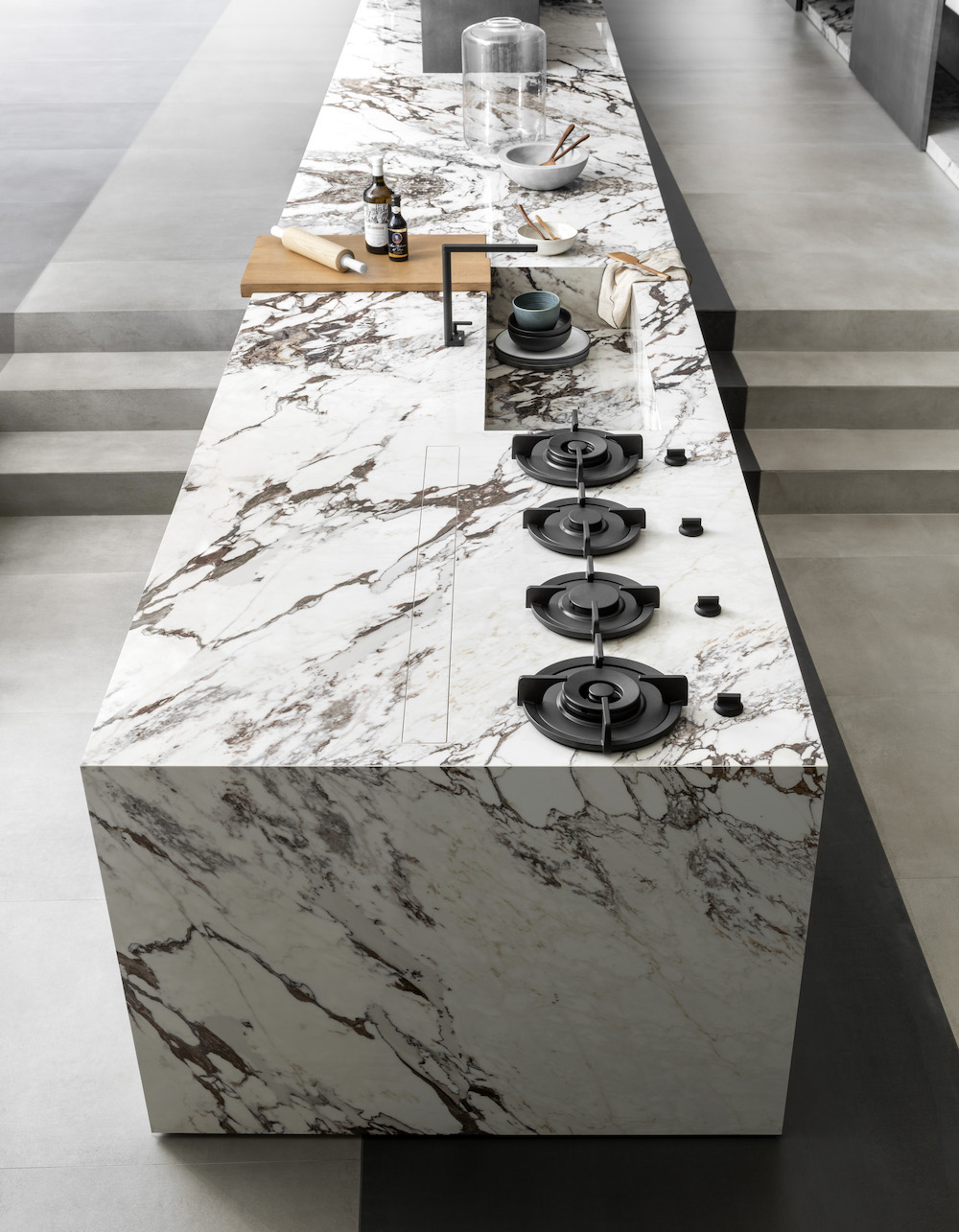
WHAT ARE THE KEY BENEFITS OF NATURAL STONE
- Timeless material: Natural stone is an effortlessly elegant material, showcasing the pure qualities of well cut stone. Whatever your decor and whatever the current fashion, natural stone will always look stunning.
- Easy to clean: Stain resistant and durable, natural stone requires only a quick soft brush or mop to remain spotlessly clean.
- Scratch resistant: Most natural stone forms are extremely hard. This makes them almost totally scratch and abrasion resistant. It would take some severe force to mar your tiles.
- Ideal for cooling and heating: Natural stone is a great conductor. This means it can provide welcome cooling in the summer but also conduct underfloor heating when warmth is needed.
- With the proper care: it is simple to keep your Natural Stone looking like new, year after year. Natural Stone is one of the easiest to maintain and most permanent of all surfacing materials. So easy, that it only requires a routinely quick wipe with a cloth and clean water or methylated spirit.
- Use coasters under all glasses, particularly those containing alcohol or citrus
HOW TO CLEAN PORCELAIN
Though porcelain doesn’t require too much upkeep, giving tiles a fairly regular brush up can keep them looking spectacular for years to come.
A quick clean can be done every couple of weeks, depending on use. To do this you can use a broom, vacuum, mop or a combination of both. Note that slightly soapy water is usually best for clearing spills.
A deeper clean is needed much less regularly to keep the areas hygienic. This can be done with a mop and a solution of vinegar mixed with water (¼ cup of white vinegar with a liter of warm water). Scrubbing the floor with this mixture will remove any stubborn dirt and also sanitise the surface. Once you have mopped the area, make sure to flush it with fresh water to get rid of any residue. You should then leave it to air dry. For more information about cleaning porcelain or natural stone check out the links provided.
At Skheme we offer a great range of high quality porcelain slabs and tiles suitable for any building or home. To learn more about our products, get in touch with our expert team today.
SOURCES:
- https://www.expressflooring.com/blog/porcelain-tile-floors-advantages-and-disadvantages/
- https://www.thespruce.com/porcelain-tile-vs-ceramic-tile-1822583
- https://www.tishflooring.com/2014/07/everything-need-know-porcelain-tile/
- https://www.porcelainsuperstore.co.uk/blog/buying-guide-porcelain-tiles/

